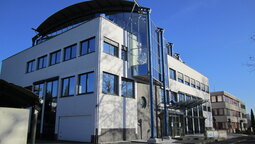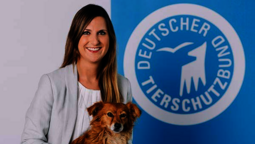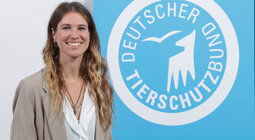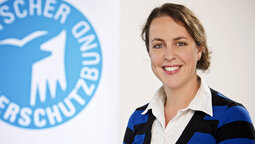The city of Bonn now wants to have the nutrias in the Bonn Rhine floodplain killed for good, ignoring the recommendations of the German Animal Welfare Federation and the protests of local animal rights activists and animal lovers. The Bonn-based German Animal Welfare Federation had tried to find an animal-friendly solution in two talks with the city authorities and offered to examine all possibilities for professional, financial and organizational support.
“We are disappointed that the city has rejected a more animal-friendly and long-term sustainable solution as well as our offer of support. The main aim seems to be to minimize the nutria population as quickly as possible - to the detriment of the animals. From our point of view, the Animal Welfare Act in particular is by no means being met with pure control,” comments James Brückner, Head of the Species Protection Department at the German Animal Welfare Federation.
In two personal discussions, the German Animal Welfare Federation had tried to convince the city of a joint scientific pilot project to render the nutrias infertile - as an alternative to shooting them. The association offered to examine its support options both organizationally and financially for catching and castrating the animals. Representatives of the city then admitted that they would at least consider such a project. Following the second meeting in mid-October with those responsible at the Lower Nature Conservation Authority, the city has now communicated its final decision: Only hunting would be an option. The reason given was based on the requirements of the EU regulation on invasive species, according to which there was no other choice. Strictly speaking, however, the regulation only provides for “management”; the EU Commission has repeatedly made it clear that for widespread species such as nutrias, infertility is also an option. Unlike the city, which considers the reintroduction of castrated animals to be legally impermissible, the Animal Welfare Federation has also always emphasized that it is perfectly possible to release the animals again - especially as part of a scientific project.
The city also rules out an animal-friendly alternative because a decline in the population is expected “after three years at the earliest”. The Animal Welfare Federation has repeatedly emphasized that although the effect of infertilization is delayed, it could certainly occur after two to three years. In addition, this method would be more sustainable because the animals remaining on site would prevent the immigration of further nutrias from outside through territorial behavior. Hunting, on the other hand, has the disadvantage - apart from the animal welfare problems - that it has to be carried out on a permanent basis and therefore ties up human and financial resources in the long term. The animals in the Rhine floodplain are to be caught in traps and taken away to be killed. The appearance of a family recreation area is maintained.





